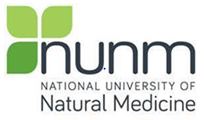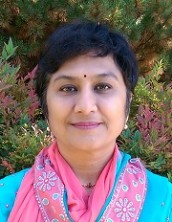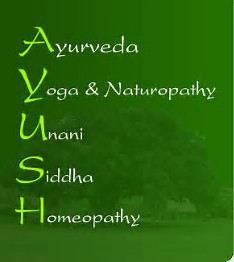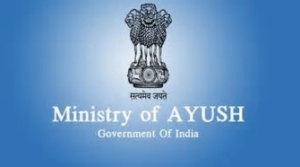Masters’ program gives ayurveda additional foothold in accredited academia
September 12, 2017
 by John Weeks, Publisher/Editor of The Integrator Blog News and Reports The former National College of Naturopathic Medicine’s expansion as the National University of Natural Medicine has taken a new step in its diversification. The university has announced that it will launch a Master of Science in Ayurveda (MScA) program in the winter or 2018. The decision marks a growing presence of Ayurveda in regionally-accredited universities. In a media release, NUNM announced that the new program will be chaired by Savita Rajukar, MD, PhD, ND (India), a physician, educator, researcher and author, with more than 25 years of academic and clinical experience. Rajukar is presently an assistant professor at NUNM who teaches elective courses in Ayurveda.
by John Weeks, Publisher/Editor of The Integrator Blog News and Reports The former National College of Naturopathic Medicine’s expansion as the National University of Natural Medicine has taken a new step in its diversification. The university has announced that it will launch a Master of Science in Ayurveda (MScA) program in the winter or 2018. The decision marks a growing presence of Ayurveda in regionally-accredited universities. In a media release, NUNM announced that the new program will be chaired by Savita Rajukar, MD, PhD, ND (India), a physician, educator, researcher and author, with more than 25 years of academic and clinical experience. Rajukar is presently an assistant professor at NUNM who teaches elective courses in Ayurveda.  The release points out the uneven status of Ayurveda in the United States. On the one hand “graduates of the ‘MScA program will be prepared to offer integrative medical care” through the program. Application in acute and chronic diseases is promised. Yet at the same time, the NUNM release shares that Ayurveda is not a licensed degree in the United States.” The institution promised incoming students that those who complete the program will be able to “use an Ayurvedic framework” from which to diagnose and treat patients within their own medical license. A portion of the clinical education will be in India with Ayurvedic partners.
The release points out the uneven status of Ayurveda in the United States. On the one hand “graduates of the ‘MScA program will be prepared to offer integrative medical care” through the program. Application in acute and chronic diseases is promised. Yet at the same time, the NUNM release shares that Ayurveda is not a licensed degree in the United States.” The institution promised incoming students that those who complete the program will be able to “use an Ayurvedic framework” from which to diagnose and treat patients within their own medical license. A portion of the clinical education will be in India with Ayurvedic partners.  I asked NUNM’S director of communications Marilyn Considine for more information on the connections in India, and specifically if NUNM is connected formally with the Department of AYUSH that was established by Prime Minister Modi in 2013. Considine shared that “the internships are close to being finalized and Dr. Rajukar has worked closely with AYUSH” and that her mentor is prominent in the ministry.” NUNM positions the new program as “the perfect complement to the naturopathic and Chinese medicine doctoral programs the university presently offers.” Heather Zwickey, PhD, NUNM’s dean of 2018.the new program’s introduction: “Interest in Indian philosophy, meditation and yoga, as well as Ayurvedic medicine is expanding in the U.S., and this program fits a special niche in our curricula.” The program will first be offered to students in other programs and then as a stand-along MScA program to “licensed clinicians in all disciplines” in Fall of 2018. Ayurveda is a system of medicine in India that dates back 5,000 years. Today it is used by nearly 42 million of India’s rural population—70 percent of the nation’s overall population. Comment: NUNM’s decision will make it the third West Coast university of natural health sciences to branch out and provide an educational program in Ayurvedic medicine. Bastyr University – which like NUNM was founded as a college of naturopathic medicine – has a Master of Science in Ayurvedic Sciences program and Southern California University of Health Sciences – originally Los Angeles Chiropractic College – offers a Ayurvedic Practitioner Certificate program. All three focus on providing new clinical tools for students.
I asked NUNM’S director of communications Marilyn Considine for more information on the connections in India, and specifically if NUNM is connected formally with the Department of AYUSH that was established by Prime Minister Modi in 2013. Considine shared that “the internships are close to being finalized and Dr. Rajukar has worked closely with AYUSH” and that her mentor is prominent in the ministry.” NUNM positions the new program as “the perfect complement to the naturopathic and Chinese medicine doctoral programs the university presently offers.” Heather Zwickey, PhD, NUNM’s dean of 2018.the new program’s introduction: “Interest in Indian philosophy, meditation and yoga, as well as Ayurvedic medicine is expanding in the U.S., and this program fits a special niche in our curricula.” The program will first be offered to students in other programs and then as a stand-along MScA program to “licensed clinicians in all disciplines” in Fall of 2018. Ayurveda is a system of medicine in India that dates back 5,000 years. Today it is used by nearly 42 million of India’s rural population—70 percent of the nation’s overall population. Comment: NUNM’s decision will make it the third West Coast university of natural health sciences to branch out and provide an educational program in Ayurvedic medicine. Bastyr University – which like NUNM was founded as a college of naturopathic medicine – has a Master of Science in Ayurvedic Sciences program and Southern California University of Health Sciences – originally Los Angeles Chiropractic College – offers a Ayurvedic Practitioner Certificate program. All three focus on providing new clinical tools for students.  The timing of these programs must please officials in India. In the Fall of 2014 India’s President Narendra Modi instituted a new policy in which India both acknowledged and elevated Ayurveda and other natural health traditions. He established the Ministry of AYUSH in the nation’s health system. The title is an acronym for Ayurveda, Yoga and Naturopathy, Unani, Siddha and Homeopathy. It is well known in global, traditional medicine circles that India has some envy of Chinese’s rapid advancement of outposts for Chinese medicine around the world. The addition of NUNM’s Master of Science program will likely be viewed as a positive expression of this desire. Meantime, the NUNM decision may complicate things for the already regulatorily-challenged field of Ayurvedic medicine. While announcing itself as “medicine”, the educational requirement for most are often no more than 500, non-accredited hours. While the field of yoga therapy, for instance, has marched forward to set standards over the past decade, no such clarity has emerged about the multiple Ayurvedic schools and organizations. Perhaps these graduates—for better and for worse—after their investment in these programs will seek to set a standard for what it means, in the United States, to be an Ayurvedic practitioner. Investment in education tends to stimulate interest in differentiating between oneself and those who are hanging up a shingle to call themselves the same thing, on lower requirements. The medical doctors who made the investment to become fellows integrative medicine fellowship at the University of Arizona, were in a similar position when they formed the specialty in integrative medicine. Editor’s note: This article is not edited and the authors are solely responsible for the content. The views and opinions expressed in this article are those of the authors and do not necessarily reflect the official policy or position of Integrative Practitioner.
The timing of these programs must please officials in India. In the Fall of 2014 India’s President Narendra Modi instituted a new policy in which India both acknowledged and elevated Ayurveda and other natural health traditions. He established the Ministry of AYUSH in the nation’s health system. The title is an acronym for Ayurveda, Yoga and Naturopathy, Unani, Siddha and Homeopathy. It is well known in global, traditional medicine circles that India has some envy of Chinese’s rapid advancement of outposts for Chinese medicine around the world. The addition of NUNM’s Master of Science program will likely be viewed as a positive expression of this desire. Meantime, the NUNM decision may complicate things for the already regulatorily-challenged field of Ayurvedic medicine. While announcing itself as “medicine”, the educational requirement for most are often no more than 500, non-accredited hours. While the field of yoga therapy, for instance, has marched forward to set standards over the past decade, no such clarity has emerged about the multiple Ayurvedic schools and organizations. Perhaps these graduates—for better and for worse—after their investment in these programs will seek to set a standard for what it means, in the United States, to be an Ayurvedic practitioner. Investment in education tends to stimulate interest in differentiating between oneself and those who are hanging up a shingle to call themselves the same thing, on lower requirements. The medical doctors who made the investment to become fellows integrative medicine fellowship at the University of Arizona, were in a similar position when they formed the specialty in integrative medicine. Editor’s note: This article is not edited and the authors are solely responsible for the content. The views and opinions expressed in this article are those of the authors and do not necessarily reflect the official policy or position of Integrative Practitioner.



















SHARE